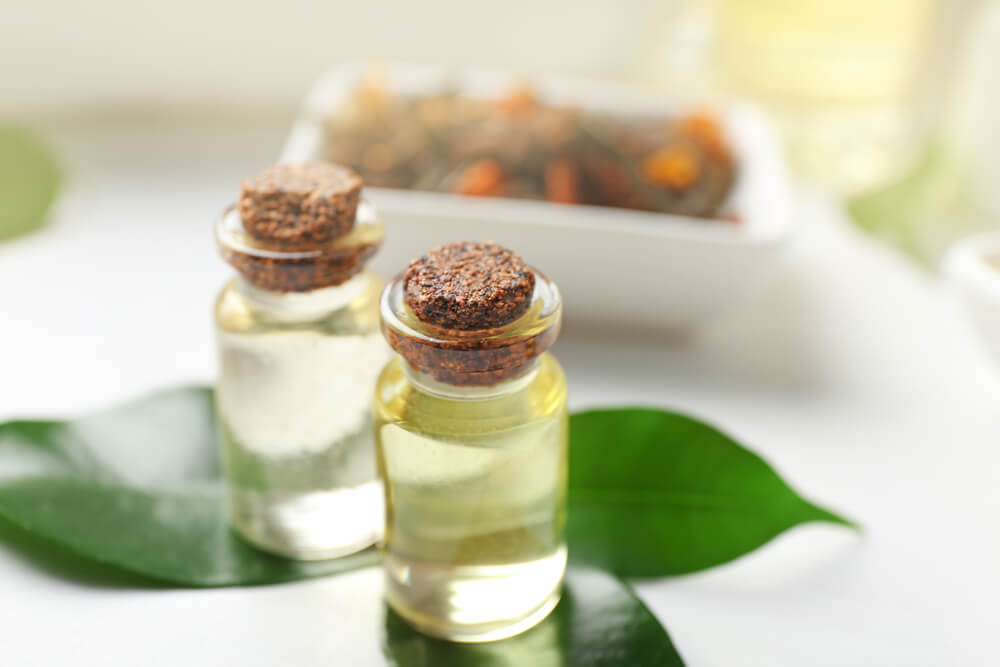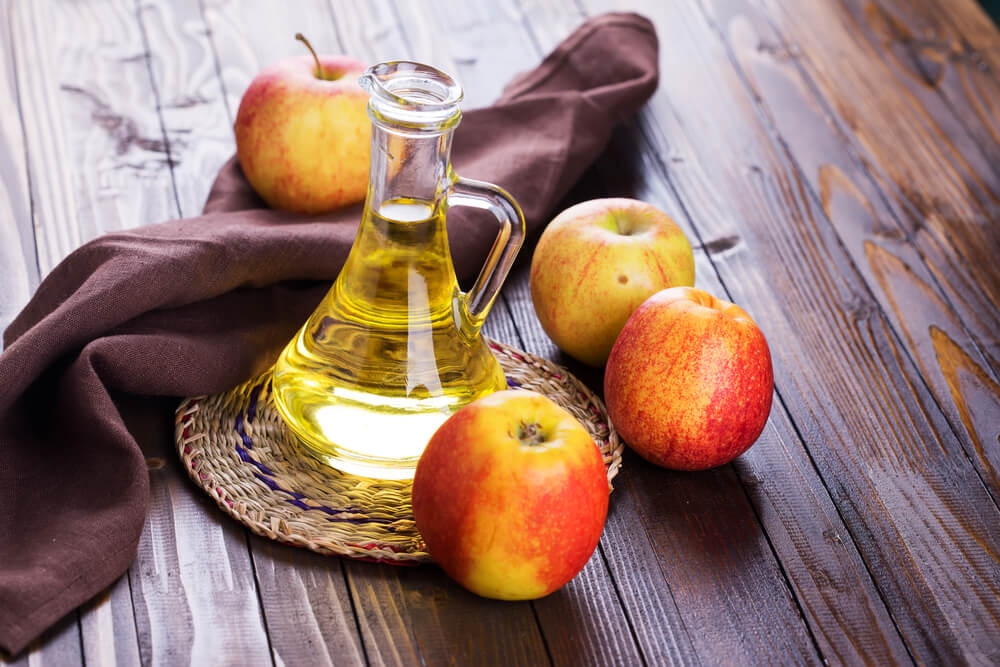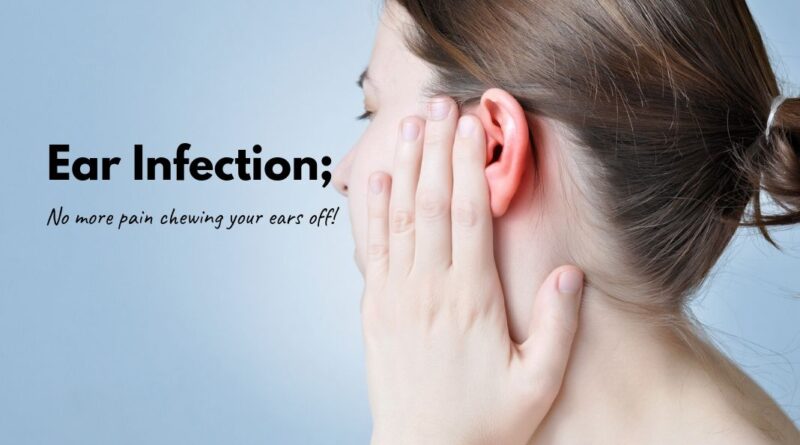Effective Home Remedies to Treat Ear Infection
Ear infections are a very common ailment in kids and as per a study(1), it is observed that five out of six children are prone to getting ear infections by the time they turn 3. Ear infections tend to affect adults as well, though its occurrence is rare.
Ear infections can cause significant pain and distress and can be life-threatening if not treated on time. Our first instinct, when faced with ear infections, is to resort to antibiotics or over-the-counter pain killers, but you will be surprised to hear that most cases of ear infections can be treated at home using natural remedies.
There is a slight difference between a normal earache and ache due to an ear infection. While the former can be due to a bad posture or external wound, earaches due to infections are more serious. Let us look at some of the symptoms of an ear infection.
Table of Contents
Naturopathic Remedies for Ear Infection
- Foods
- Home Remedies
- Alternative Treatments
- Supplements
Ear Infection Symptoms
Early detection of an ear infection is possible if one is familiar with the symptoms and thus, immediate care can be provided to ease the discomfort. If any of the below symptoms are observed then it is highly likely that the affected person has an ear infection.
- Ear pain which increases with the passage of time.
- Problems in hearing.
- Formation of pus in the ear along with redness and inflammation.
- Difficulty in maintaining balance.
- Acute nausea accompanied by vomiting and fever.
- A ringing sensation in the ear also called Tinnitus.
What Are the Different Types of Ear Infection
Fluid formation in the middle ear usually leads to an ear infection but infection can also be in the outer and inner ear. Few of the main types of ear infection can be outlined as:
1. Outer Ear Infections
One of the most common types of ear infection is ‘swimmer’s ear’. In these cases, the outer covering of the ear canal suffers from a bacterial infection caused by excessive immersion in water, like during swimming, or by external damage caused by swabs, etc.
2. Middle Ear Infections
The common cold is another culprit which causes ear infections. Due to the flu virus, the middle ear, or the hollow cavity in the ear gets filled with pus and causes discomfort and pain. The middle ear infections tend to get cured on their own as the cold gets better, though some home remedies can be applied to ease the symptoms.
3. Inner Ear Infections
The riskiest of all ear infections are inner ear infections. As the inner ear helps in keeping our balance, an infection there affects our balance causing vertigo and a ringing sensation in the ears. Inner ear infections are more common in adults than in kids and can also be assuaged at home, though in certain cases it is advised that proper medical care is taken.
Now that we know why and how ear infections arise, it is time we look at ways to cure the same. Ear infections can be cured using various oils, food items, exercises, etc. which we will be discussing next.
CURE 1: Foods
Most of the food items that we consume contain essential nutrients, proteins, and oils which can help alleviate many common ailments like ear infection, common cold, etc.
1. Garlic (Allium Satium)

Garlic is used mainly for adding flavor to food and also plays an essential role as a medicine. Garlic was used to cure mainly ailments due to its therapeutic properties in ancient times, as well as in the modern world.
Why Does This Work?
Garlic works well to alleviate earache as it contains a compound called “Allicin” which is said to be useful in killing the bacteria causing earache. Most times, earaches are caused due to bacterial or viral infections and thus garlic can help cure the same easily.
How to Use?
There are two ways to use garlic for getting relief from earache. Firstly, raw garlic can be chewed upon which will release Allicin and help fight the bacterial infection. Though, if you do not fancy eating raw garlic, then grate 3-4 garlic cloves and collect their juice. The juice should be then heated a little and poured in the ear canal. This will help remove the bacterial infection quickly. It is important to note that only a few drops of garlic juice should be applied to the ears and they should be warm and not hot or else there is the danger of burning the ear canal.
How Much to Use?
There is no strict dosage for using garlic though it is not advisable to consume antibiotics and garlic together. Do consult your doctor before opting for this remedy.
2. Ginger (Zingiber Officinale)
Ginger is a root and a type of spice which is found very useful for its health benefits. Ginger is said to help with arthritis, pain relieving, preventing cancer, and improving respiratory issues.
Why Does This Work?
Ginger contains anti-inflammatory properties which help in curing the ear inflammation and reducing the discomfort.
How to Use?
Warm ginger juice should be applied to the outer area where the inflammation has taken place in order to soothe the same. Ginger juice can be extracted by shredding the ginger and then heating the juice slightly. It is also advisable to use ginger in our daily diet as it will help keep many diseases at bay.
How Much to Use?
Again, there is no fixed dosage for the ginger juice treatment though it is advisable that it be used once or twice a day until the pain subsides. Also, it is important to note that ginger root should not be inserted directly into the ear. This would not help the issue rather cause further distress.
Also Read: 6 Natural remedies with ginger for your skin health
3. Salt for Ear Infection

Salt is one of the most important seasonings in cooking as, without it, food would never taste good. Salt also helps in curing dehydration.
Why Does This Work?
Salt is a great medium to absorb moisture and is often used to cure meat, vegetables, etc. The same properties are used to reduce ear infection by removing moisture from the ear canal. In the absence of moisture, bacteria would not be able to survive and thus would perish.
How to Use?
Salt cannot directly cure the root of the infection but it can certainly reduce the infection. To use it, heat some salt in a pan, then transfer it to a clean cloth with its ends tied. Once the salt has cooled a bit, keep the clean cloth with the salt inside next to the ear opening. Remember to cool the salt before using, but make sure that it stays warm. This warm salt pack will help in absorbing the moisture from the ear and thus actively reduce the bacterial infection.
How Much to Use?
The salt packs can be applied every 4-5 hours until the ear pain and inflammation subsides. In case the pain does not subside, consult a doctor immediately.
Besides the above-mentioned food items and seasonings which help in alleviating ear pain, water can also work wonders to release mucus from the eardrum, especially if you have a middle-ear infection. Drinking a lot of water helps keep the body hydrated and also works to remove mucus from the ear in the form of nasal discharge or throat discharge. This helps in reducing the ear infection and thus the associated pain.
CURE 2: Essential Oils
Home remedies are defined as tonics or medicines prepared at home whose effectiveness in curing an ailment has not been tested or proved. There are a number of home remedies which help in getting relief from ear pain.
1. Cold and Hot Press
Cold ice packs and hot press, both can help reduce ear pain due to infection. Ice packs can be bought readily in the market or can be made at home using ice cubes and clean cloth. Hot press packs or bottles are also available in the market or can be substituted by a clean cloth which has been made warm using an iron.
Why Does This Work?
An ice pack, when pressed close to the ear helps in numbing the area and reducing ear pain. On the other hand, a hot press pad when kept on the inflamed ear helps in expanding the muscles in the area and increases blood circulation which in turn helps in reducing the pain. This home remedy works best mainly for outer ear infections.
How to Use?
Ice packs, store bought or made at home, should be kept on the ear for a duration of 5-10 minutes which will result in numbing of the ear area. Similarly, warm cloth or a store bought hot pad should be kept lightly on the outer ear for blood circulation to increase.
How Much to Use?
The ice pack or the hot press can be used a number of times in the day if they provide relief. Care must be taken to ensure that cold and hot packs are not applied alternatively and only one kind of pack is applied at a time. The temperature of the hot pack should not be very high or else it could scald the ear. The ice pack, if made at home, should be checked before putting on the ear as it might leak some water which can enter the eardrum.
2. Tea Tree Oil

Tea tree oil is a kind of essential oil which is very useful in treating a range of ailments relating to skin, hair, etc. They are also a great home remedy for curing earache.
Why Does This Work?
Tea tree oil is said to have antiseptic, anti-inflammatory, and antifungal properties and thus putting a few drops of the oil in the ear will immediately help in alleviating earache.
How to Use?
Tea tree oil, if heated along with any other oil like olive oil, etc. makes for a good medicine to relieve someone from earache. As tea tree oil is very strong, it is advised that 3-4 drops of tea tree oil are mixed with one ounce of olive oil or almond oil, etc. Then, around 4-5 drops of this heated oil mix should be applied to the ear canal for instant relief.
How Much to Use?
The combination of tea tree oil with olive oil can be applied to the ear 3-4 times over the course of the day. It is important to conduct an allergy test on the patient before applying the mixture to their ears as they might not react to it well and it may add to the problems.
3. Peppermint Leaves and Oil
Peppermint is quite an underrated plant though it consists of antiseptic, pain relieving, and anti-bacterial properties. It is used for treating the common cold and can also be effective in the case of earache.
Why Does This Work?
Peppermint leaves have a unique smell and also secrete peppermint oil when rubbed together. The peppermint juice from the leaves and the oil consist of anti-inflammatory properties which help in subsiding the ear pain due to infections.
How to Use?
Firstly, fresh peppermint leaves need to be made available and rubbed together. This action would lead to the secretion of peppermint juice, which can be applied to the affected ear using a dropper and should be restricted to only 2-3 drops. The peppermint oil which is also secreted by the leaves should be gently applied around the outer ear to alleviate the pain symptoms.
How Much to Use?
The peppermint juice treatment can be repeated once or twice in the whole day. Care needs to be taken to ensure that the patient does not apply peppermint oil to the eardrum in place of the peppermint juice as the former is quite strong and might sting the inflamed ear.
4. Apple Cider Vinegar

Apple Cider Vinegar is the answer to many ailments and skin related issues. It can also effectively cure ear pain and infection.
Why Does This Work?
Apple Cider Vinegar’s composition works effectively in curing fungal, as well as bacterial, infections. Applying a few drops of apple cider vinegar mixed with water can greatly help in reducing mild ear infections.
How to Use?
Do not apply apple cider vinegar directly to the ears. Instead, dilute it with water in a 1:1 ratio. Next, dab a cotton swab with this mix and plug it in the affected ear. The apple cider vinegar mix will slowly be absorbed by the eardrum effectively curing the infection inside out.
How Much to Use?
This method of using apple cider vinegar swabs can be repeated twice in a day but it is advised that later a hair dryer or blower be used to dry the inner ear thus removing any moisture inside. This will not only cure the infection but it will also prevent new infections from affecting the ear.
Also Read: Essential oils for neuropathic pain relief
Uncommon Home Remedies that you didn’t know off!
Did you know that besides olive oil, tea tree oil, and peppermint oil, you can also use mullein oil to help cure ear infections and the pain associated with it? Mullein is a flower from which oil is extracted and converted into herbal ear drops. This herbal ear drops work towards curing the ear infection while also numbing the pain and making it bearable.
Another home remedy, though uncommon, is using hydrogen peroxide for reducing the earache. Hydrogen peroxide is used topically on cuts and wounds and can also be used effectively to cure ear infections.
It is also quite useful in removing excess wax from the ear and thus works as a double cure for both wax and an ear infection at the same time. Dilute hydrogen peroxide (3%) with water and soak a cotton ball in it. Carefully place the cotton ball inside the eardrum plugging it. When the liquid is absorbed by the ear, it will effectively remove excess wax and also cure the infection. There might be a slight stinging sensation when the liquid falls in the ear.
After around 10 minutes, the ear should be bent down and any excess liquid should be drained out. Repeating this exercise for 10 days will show results by reducing infection and pain considerably.
CURE 3: Alternative Treatments
While we use home remedies and change our diet in order to eliminate the ear infection and reduce earache, we can also look at some alternative physical therapies which will help us get similar results.
1. Neck Exercise

It is quite possible that the ear aches experienced by you or your child are not due to any infection, but rather, it is due to stretched ear muscles which cause pain. If this is the case, then this type of earache can be reduced by just performing some neck exercises.
Why Does This Work?
If there is no ear infection, but the ear still pains, then it is quite possible that it is due to a bad sleeping posture or excessive stress on the ear muscles. Moving the neck in a clockwise and anti-clockwise direction will help stretch the muscles around the neck and the ear. This should help with the earache.
How to Use?
The neck exercise is very simple where the patient only needs to rotate their neck, move the head from side to side, and move the shoulders up and down. These movements will help in stretching the ear muscles and release any pressure exerted on the eardrum.
How Much to Use?
The neck exercises can be done whenever the patient feels like it, if it provides relief. It is important to note that these neck exercises work only if the earache is due to other reasons apart from an ear infection.
2. Chewing
Sometimes, earaches are caused by extreme pressure on the ears especially during take-offs or landing in airplanes and while underwater. During those times, the chewing action can work wonders in eliminating the ear pain.
Why Does This Work?
The chewing action or actually chewing food/gum leads to movement of the ear muscles and, therefore, helps in popping the ears while removing any pressure on the eardrums.
How to Use?
Just slip a chewing gum in your mouth just before landing or take-off in a flight, or else sipping water and doing the swallowing action will also work in reducing any kind of discomfort.
How Much to Use?
There is no hard and fast rule on how many times you should perform the chewing action or swallow water/saliva, though only normal earaches can be cured by this practice and not ear pain due to infections.
3. Sleeping Position

A correct sleeping posture can also help in curing earaches. If the earache is due to external factors or due to an ear infection, an upright position can help resolve ear pain.
Why Does This Work?
Sleeping in an upright position or with your back straight akin to a sitting position helps in keeping the pressure away from the ear and this leads to lesser ear pain.
How to Use?
Whenever you face ear pain, especially if in the night, then it is advised to sit upright as it will take away all the pressure from the ears along with the blood flow and reduce ear pain.
How Much to Use?
As this is a physical exercise and not a medicinal remedy, there is no limit to how long you should sit upright in order to assuage the ear pain.
CURE 4: Supplements
Supplements, as the name suggests, are food items or vitamins and minerals which are consumed to help cure ear pain. These supplements alone cannot relieve the pain but over time, help in building a strong immune system able to fight any kind of infection.
1. Vitamin D
We get Vitamin D from the sun which is essential for strong bones and increased immunity in humans. Vitamin D can, in the long run, make your immune system stronger, which will prevent you from being affected by many infections.
Why Does This Work?
Vitamin D is essential for our bodies and helps in keeping the human immune system strong. This supplement does not work on curing an ear infection after it has spread in the ear but helps in preventing future instances of ear infections.
How to Use?
Vitamin D supplements are easily available OTC and can be consumed orally. A great way to make more Vitamin D in the body is by spending time in the sun and eating eggs and chicken.
How Much to Use?
It is advised that you have a small amount of oral vitamin supplement as required and not go overboard as excessive Vitamin D in the body is also not healthy. You should check with your doctor to understand what is the right dosage of vitamin D as per your body requirements.
2. Vitamin C and Fruits

Vitamin C is an important element which is required by your body for building a strong immune system. Citrus fruits help us get Vitamin C easily and also help in keeping us healthy from within.
Why does it work?
Vitamin C is said to increase immunity while decreasing the risk of getting any communicable disease. Citrus fruits and Vitamin C are also studied to decrease inflammation around an infection. As earaches are usually felt when the area around the infection is inflamed, vitamin C can help to resolve the same.
How to Use?
You can either opt to ingest Vitamin C supplements orally or increase the intake of fruits in your diet. This will not cure an infection immediately but if used over a prolonged period, it will reduce the chances of the occurrence of infections and if an infection has been caught, it would help in curing the area around the infection.
How Much to Use?
There is no restriction on eating fruits, though one should consult a doctor before taking vitamin C supplements. After a proper blood report which reflects the current Vitamin C levels in the body, a doctor should prescribe the correct dosage for vitamin C supplements.
3. Fish Oil Supplements
Fish oil, as the name implies, comes from fish. It contains omega-3 fatty acids, which has demonstrated to have a positive impact on heart health and can protect you against strokes and heart disease.
Why does it work?
Omega 3s have a number of health benefits including reducing the risk of cancer, reducing inflammation, lowering blood pressure, and improving the health of your arteries. In cases where there is severe ear inflammation, Omega 3 supplements can help cure the inflammation.
How to Use?
Fish-oil supplementation is very simple and could be followed by just using them right from the container. Although it is strictly advised that you check with your doctor/physician before you do so.
How Much to Use?
It is recommended that you consume it as per the dosage instructed on the container and then increase the dosage as per your requirement. However, before doing so, it is recommended that you consult with your physician and understand any side-effects of this supplement if any.
Also Read: Are fish oil supplements healthy in pregnancy?
4. Probiotics

Probiotics are good bacteria which are essential for our body’s gut health. Many a time, when we resort to antibiotics for curing ear infections, they tend to kill the good bacteria in our body as well, which can be replenished only via consuming probiotics.
Why Does This Work?
Probiotics do not work at eliminating a current ear infection, rather they work on preventing future occurrence of an instance of infection. They can reduce both bacterial and fungal infections along with suppressing infections caused by allergies.
How to Use?
Probiotics are available in medical shops and can also be found in yogurt, pickles, and kimchi. One should increase the intake of probiotics in the diet to avoid any future cases of ear infections.
How Much to Use?
Natural probiotics like yogurt, pickles, etc. can be eaten twice or thrice a day while probiotic drinks should be consumed after consulting with your doctor regarding frequency and dosage.
Foods To Eat
As discussed above, there are many ways in which the occurrence of an ear infection can be restricted by eating the right kind of food and supplements. Let us look at some of the food categories and food items which promote good ear health and prevent infections.
As discussed above, there are many ways in which the occurrence of an ear infection can be restricted by eating the right kind of food and supplements. Let us look at some of the food categories and food items which promote good ear health and prevent infections.
| # | Food Groups | Foods To Eat |
| 1 | Vegetables | Kale, mustard, bell peppers, broccoli, cauliflower, and brussels sprouts. |
| 2 | Fruits | Orange, papaya, kiwis, and strawberries. |
| 3 | Supplements | Vitamin D, Vitamin C, Omega 3, and probiotics. |
Ear Infection – When Is It Time to Visit a Doctor?
Usually, a mild ear infection would get cured by adopting any of the above-mentioned food cures, home remedies, and physical exercises. However, there are times when home remedies fail to cure the infection and the patient should be taken to a doctor immediately. Here, we list the following symptoms when it is recommended to provide immediate medical care to the patient rather than depending on the naturopathic treatment.
- If the ear infection and the associated pain haven’t subsided in 3 days, then it is advised to get proper medical attention for the infection.
- If very high fever is recorded along with loss of balance and hearing, then it’s a warning sign, which should be given heed to.
- Usually, in an ear infection, pus formation is normal but if there is constant discharge coming from the ear then it signifies extreme infection and requires medical attention.
Prevention From Ear Infection
Sometimes, even the slightest pain in the ear can aggravate and turn out to be an ear infection. It is advisable that we maintain proper hygiene and do not indulge in putting swabs in the ears for cleaning as they might rupture the eardrum and can also cause outer ear infections.
A healthy diet along with supplements can ensure that we become immune to ear infections, but in case we are faced with the inevitable, there are a number of remedies available to cure the ear infection easily and quickly.
But as mentioned, it is not preferable to wait for more than 3-4 days before showing to a doctor if the home remedies do not provide any relief and the pain keeps increasing.




